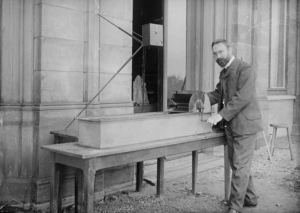Glugging glue wine as Christmas comes unstuck
 Don’t sniff, but are spicy Brits glugging glue this Christmas? Bountiful bottles of Glühwein selling from UK supermarket shelves might suggest people who come unstuck in extended isolation are reaching for a remedy or trying to put a broken Christmas back together, but in fact this import is the traditional German equivalent of mulled wine, also known as spiced wine, and has no known connection to glue. A humble red wine heated with cinnamon, cloves, allspice, nutmeg and even raisins is a widespread winter drink in Europe and nicely disposes of otherwise undrinkable dregs of cheap wine. Although traditionally this potion goes by different names in different lands, now in English it is flirting with a hot new name from abroad, and we are provisionally adding it to our growing list of German words used in English.
Don’t sniff, but are spicy Brits glugging glue this Christmas? Bountiful bottles of Glühwein selling from UK supermarket shelves might suggest people who come unstuck in extended isolation are reaching for a remedy or trying to put a broken Christmas back together, but in fact this import is the traditional German equivalent of mulled wine, also known as spiced wine, and has no known connection to glue. A humble red wine heated with cinnamon, cloves, allspice, nutmeg and even raisins is a widespread winter drink in Europe and nicely disposes of otherwise undrinkable dregs of cheap wine. Although traditionally this potion goes by different names in different lands, now in English it is flirting with a hot new name from abroad, and we are provisionally adding it to our growing list of German words used in English.
Continue reading full article…








 During the Coronavirus crisis there have been a number of allegations that people in Britain are ‘behaving like the Stasi’ or that we have a ‘Covid Stasi’, but how do these claims stack up against the reality of Germany’s past, and how does it relate to Britain today?
During the Coronavirus crisis there have been a number of allegations that people in Britain are ‘behaving like the Stasi’ or that we have a ‘Covid Stasi’, but how do these claims stack up against the reality of Germany’s past, and how does it relate to Britain today?
 Hamsters have been emptying shop shelves across Germany and now seem set to cross borders as other countries take up the telling term Hamsterkauf. Wise advice to stock up on essentials before being confined to home by an anti-coronavirus
Hamsters have been emptying shop shelves across Germany and now seem set to cross borders as other countries take up the telling term Hamsterkauf. Wise advice to stock up on essentials before being confined to home by an anti-coronavirus 
 We are pleased to report that HE Translations continues to operate as normal at this challenging and surreal time. After all, we have been practising home working for 25 years, as illustrated in a
We are pleased to report that HE Translations continues to operate as normal at this challenging and surreal time. After all, we have been practising home working for 25 years, as illustrated in a 
 The unicorn has captured the human imagination since the earliest days of India, appears in the
The unicorn has captured the human imagination since the earliest days of India, appears in the 
 Déjà Vu is an advanced Computer-Assisted Translation (CAT) program, which was introduced in 1993 and became know as the Ferrari among CAT tools. It was developed by the ingenious Emilio Benito of
Déjà Vu is an advanced Computer-Assisted Translation (CAT) program, which was introduced in 1993 and became know as the Ferrari among CAT tools. It was developed by the ingenious Emilio Benito of 
 A passionate debate has erupted over the grammar of the wording on the new 50 pence ‘Brexit coin’ due for release by the Royal Mint on Friday, January 31 2020. It was prompted by
A passionate debate has erupted over the grammar of the wording on the new 50 pence ‘Brexit coin’ due for release by the Royal Mint on Friday, January 31 2020. It was prompted by 